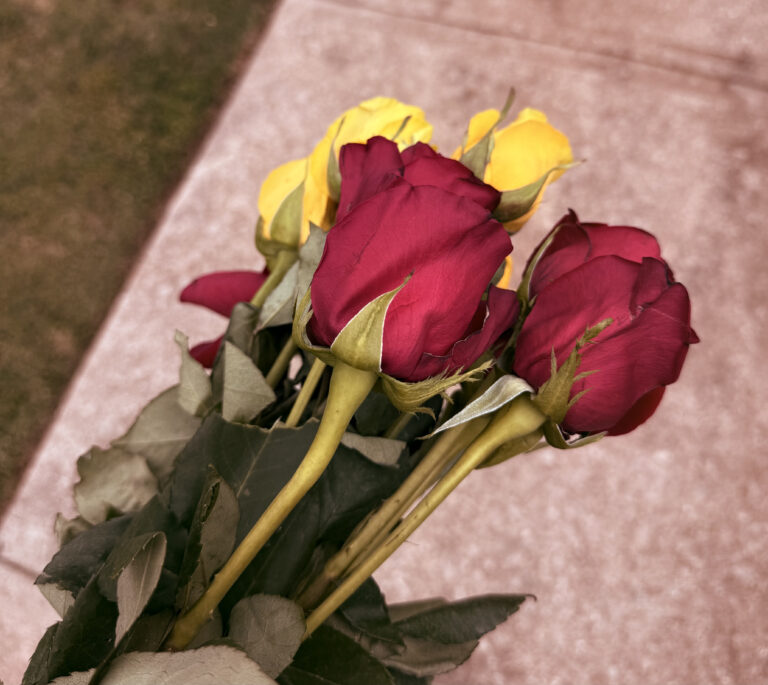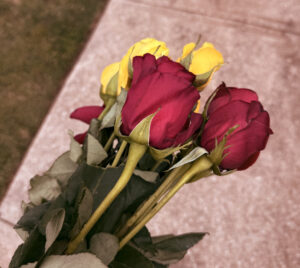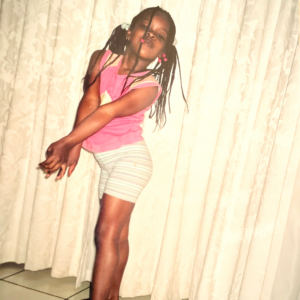Monday came gently, like most Mondays in May — unassuming, slightly warm, and filled with the quiet hum of routine. I woke before the sun had fully risen and made my way to the senior center, where I’d spend the morning helping package meals.
This time, however, I wasn’t alone. There were three others who had also dedicated their morning to making sure the elderly, many of whom could no longer cook for themselves, would have something to eat that week.
It should’ve felt like any other Monday. But something in the air that day was different. There was a heaviness, a certain melancholy I couldn’t quite place.
Then the director came in and spoke of strokes and soft diets. She told us how so many of the seniors could no longer chew and how all their food had to be mashed together into something gentle and easy to swallow.
As I packed each bag with goods, something quiet stirred in me. I became unusually conscious of my own body and its health. Still being in my twenties, my body is strong; I haven’t yet experienced the aches and creaks that people warn come with age.
Moving is still easy, so easy that I can’t imagine a life where I cannot move, where my body is no longer agile or strong.
It’s not that I’ve never thought about mortality before. Trust me, I have. I know that time doesn’t last forever and that in the end it comes for us all.
But youth has a way of making death feel like a distant myth.
There’s a whisper in most of us, especially when we feel full of life, that says: Time will come for others but not for you.
Because when you still feel full of life, it’s hard to imagine that one day you, too, may need help to eat. Or walk. Or remember.
But those seniors were once like me. They were once agile, dancing in their kitchens, laughing in their living rooms to songs that stirred fire in their souls. The idea that they would one day lose that vibrancy probably felt impossible too.
We forget that the old were once young.
And the young, too, will one day grow old.
So somewhere between the packing and the silence that followed, a thought bloomed inside me:
After this shift, I’ll go to a graveyard.
And I won’t go empty-handed. I’ll take them flowers.
Not for anyone I knew. Not for someone I lost. But for strangers. For souls. For those no longer remembered by the world but still cradled by the earth.
I know what you’re probably thinking. Why would someone young visit a graveyard for no reason? I suppose it sounds strange. Morbid, even. I’m thankful to say I’ve never lost someone close to me, never been to a funeral.
Death has always felt like something that happens in books, in the news, in other people’s lives but not mine. But lately, I’ve been asking questions:
What is the true meaning of life?
Is it the degrees? Is it the money? Is it the number of followers, the friends we collect, the bags we carry?
That Monday morning, I needed to know.
Surely it has to be something deeper.
Surely there’s more.
So, I went looking for the answer. Not in a classroom or a book, but among the dead.
When my shift ended, I bought a bouquet of red and yellow roses and placed them beside me in the passenger seat. I searched for the nearest cemetery and followed the winding road to its gates.
I expected fear. Or a strange chill. But as I parked and stepped out of the car, flowers in hand, what I felt instead was peace.
The gravestones were simple. They all had the same elements: full name, birth date, death date… and how they were remembered.
On almost every one, they were remembered as a husband, wife, father, mother, sister, brother, daughter, or son.
That was it.
Not their degrees.
Not the places they’d traveled.
Not their net worth or what kind of job they had.
None of that mattered here.
What mattered and what was carved in stone was who they loved, and who loved them.
So as I placed my flowers on random graves. I sat in silence, surrounded by the souls who had gone before me. And I thought:
Maybe, just maybe, the answer to life, the answer to living well is to love. And to love well.
Not perfect love. Not storybook love. Just real, honest, trying love.
Love is not something we ever truly regret. Even when it hurts. Even when it’s messy. Even when it leaves.
We may regret the people, the timing or the choices. We might regret the times we held it back. The times we were too afraid to feel deeply, to care boldly, to be seen. But love itself? Never.
I’m not saying don’t dream. I’m not saying don’t reach for more.
I’m ambitious. I believe in vision, and I believe in greatness.
But if you don’t love and if you don’t let yourself be loved then you haven’t truly lived.
And if you haven’t lived, you’ve wasted the most precious gift we’ve been given — life.
There’s a quote I read once by Christopher Walken, and it still lingers with me:
“If you knew how quickly people forget the dead, you would stop living to impress people.”
And there, in that quiet graveyard, surrounded by names and memory, I finally understood.
We are not our achievements. We are not our fears. We are not even our hopes. We are beings either filled with love, begging to be loved, or giving love.
And when all is said and done and when our hour comes then the only thing that will remain is love.
Who we chose to love,
And who chooses to love us.
That, I believe, is the highest gift humanity has been given.
The holy, fragile ability to give, to receive and to ultimately become love itself.




